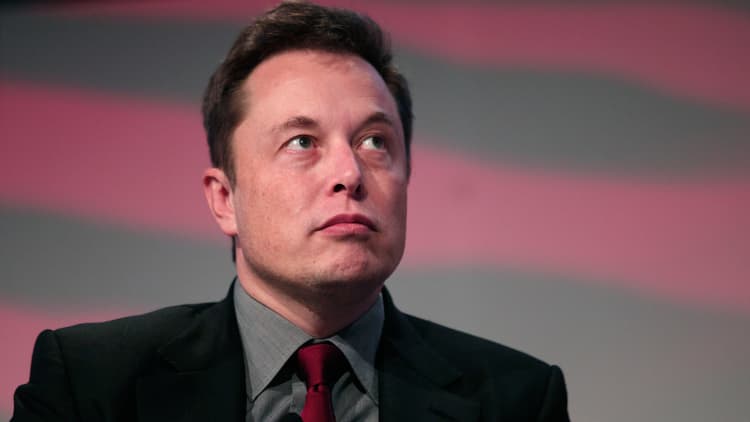Apple co-founder and Silicon Valley tech icon Steve Wozniak isn't worried that robots will leave us all unemployed, not in the foreseeable future, anyway.
Yes, technology has made our lives more convenient than ever before, Wozniak says, speaking at the eMERGE conference in Miami, Fla., Monday.
"We have built all this technology to take care of our needs so well, I just have to know what button to push," says Wozniak, who co-founded Apple with Steve Jobs in 1976. "My world is taken care of by the machines."
But while technology allows us to order our groceries online so that we don't have to go to the supermarket, for example, that doesn't mean that robots will become overlords any time soon.
"This idea that computers could take over our jobs — because if they can think better, why have a CEO in a company? If a slow CEO costs you money, get rid of the CEO and have computers running the whole world — that's a theory. And I don't buy into it," he says.
"You would have to change every bit of infrastructure [to enable] machines sending orders to other machines ... everything in life, there is just way too much to convert. It would take hundreds of years to convert," says Wozniak. "So I am not worried about 'We are just going to be the secondary species to machines' for quite a long time."
Society seeks equilibrium and everyone winds up basically with a job. So just because one category of jobs disappears doesn't mean others aren't coming.Steve Wozniakco-founder of Apple
Despite Wozniak's take, others have warned that the rapid evolution of technology will leave so many people out of work that the government will have to create a universal basic income (UBI) — a guaranteed fixed paycheck, regardless of employment status.
"I am not sure what else one would do. I think that is what would happen," Tesla and Space X CEO Elon Musk told CNBC of UBI in November. And in his Harvard commencement speech delivered in June, Facebook CEO Mark Zuckerberg called for universal basic income to increase innovation.
Wozniak does not dispute that technology is already replacing jobs in certain fields. He points to car factories as an example. But he sees it as more of a shift.
"Over time — society seeks equilibrium and everyone winds up basically with a job," he says. "So just because one category of jobs disappears doesn't mean others aren't coming in now and in the future," he says.
"So, I don't really buy into this 'Oh my gosh! Machines and technology are a really great threat.' It just makes our life more optimal, so we can have more things. If you get something for less money, that just means you get to have a little more money for something else."
Wozniak's view of technology as empowering, not threatening, aligns with his career. As a key player in the introduction of the personal computer, Wozniak has spent his life working to make it easier for humans to interact with and be empowered by tech.
"Let humans be humans. Let technology enhance our lives, my thoughts, what I want to do. I can achieve it better because of all this."
See also:
Elon Musk: Robots will take your jobs, government will have to pay your wage
Here's what happened when Steve Jobs called to buy this founder's start-up





